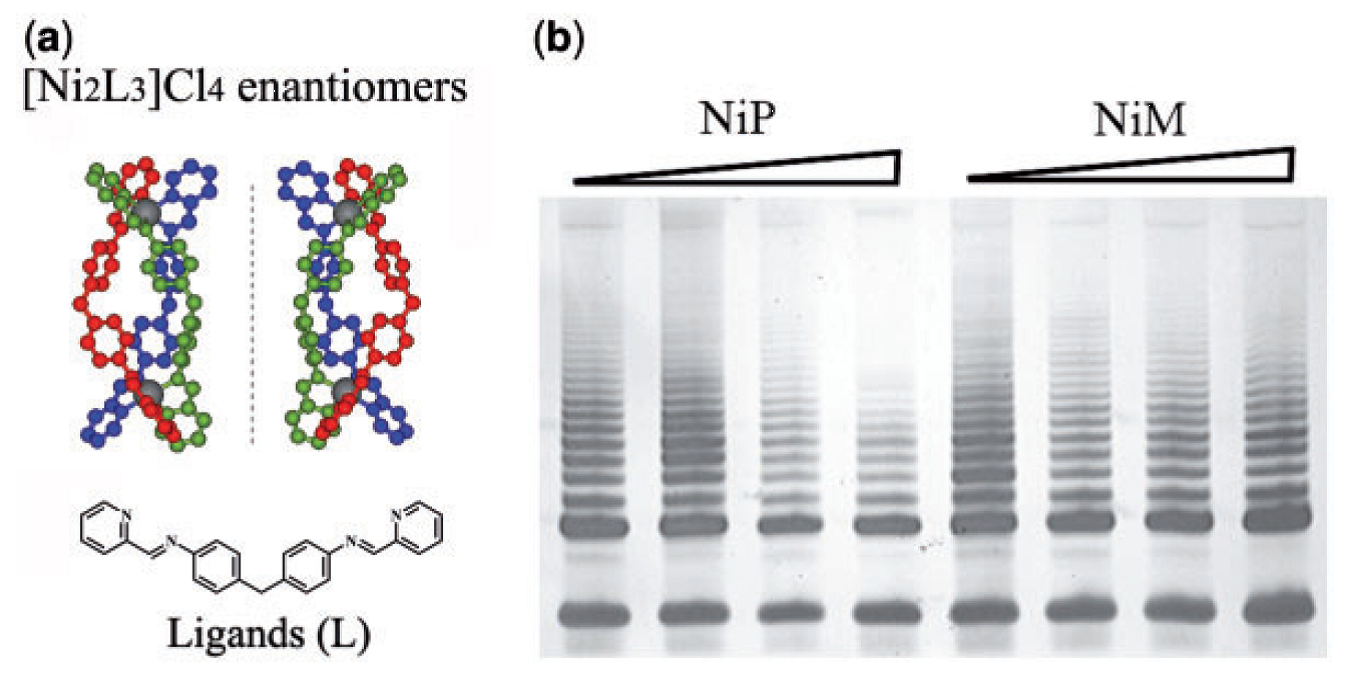曲晓刚课题组王佳思文章被 Nucleic Acids Research 接收,文章发表在Nucleic Acids Research, 2014,42 , 3792上。
Chiral recognition of DNA molecules is important because DNA chiral transition and its different conformations are involved in a series of important life events. Among them, polymorphic human telomere DNA has attracted great interests in recent years because of its important roles in chromosome structural integrity. In this report, we examine the short-term effect of chiral metallosupramolecular complex enantiomers treatment on tumor cells, and find that a zinc-finger-likealpha helical chiral metallo-supramolecular complex, [Ni2L3]4+-P enantiomer (NiP), can selectively provoke the rapid telomere uncapping, trigger DNA damage responses at telomere and degradation of G-overhang and the delocalization of telomeric protein from telomeres. Further studies indicate that NiP can induce an acute cellular apoptosis and senescence in cancer cells rather than normal cells. These results are further evidenced by the upregulation of p21 and p16 proteins. Moreover, NiP can cause translocation of hTERT from nuclear to cytoplasm through Tyr 707 phosphorylation. While its enantiomer, [Ni2L3]4+-M (NiM), has no such mentioned effects, these results clearly demonstrate the compound’s chiral selectivity in cancer cells. Our work will shed light on design of chiral anticancer drugs targeting G-quadruplex DNA, and developing telomere and telomerase modulation agents.


